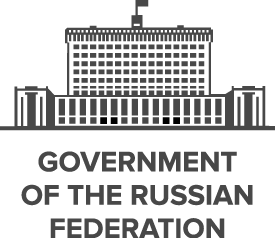Founded in the 12th century, the Principality of Muscovy was able to emerge from over 200 years of Mongol domination (13th-15th centuries) and to gradually conquer and absorb surrounding principalities. In the early 17th century, a new ROMANOV Dynasty continued this policy of expansion across Siberia to the Pacific. Under PETER I (ruled 1682-1725), hegemony was extended to the Baltic Sea and the country was renamed the Russian Empire. During the 19th century, more territorial acquisitions were made in Europe and Asia. Defeat in the Russo-Japanese War of 1904-05 contributed to the Revolution of 1905, which resulted in the formation of a parliament and other reforms. Repeated devastating defeats of the Russian army in World War I led to widespread rioting in the major cities of the Russian Empire and to the overthrow in 1917 of the imperial household. The communists under Vladimir LENIN seized power soon after and formed the USSR. The brutal rule of Iosif STALIN (1928-53) strengthened communist rule and Russian dominance of the Soviet Union at a cost of tens of millions of lives. After defeating Germany in World War II as part of an alliance with the US (1939-1945), the USSR expanded its territory and influence in Eastern Europe and emerged as a global power. The USSR was the principal adversary of the US during the Cold War (1947-1991). The Soviet economy and society stagnated in the decades following Stalin’s rule, until General Secretary Mikhail GORBACHEV (1985-91) introduced glasnost (openness) and perestroika (restructuring) in an attempt to modernize communism, but his initiatives inadvertently released forces that by December 1991 splintered the USSR into Russia and 14 other independent republics.
Following economic and political turmoil during President Boris YELTSIN's term (1991-99), Russia shifted toward a centralized authoritarian state under the leadership of President Vladimir PUTIN (2000-2008, 2012-present) in which the regime seeks to legitimize its rule through managed elections, populist appeals, a foreign policy focused on enhancing the country's geopolitical influence, and commodity-based economic growth. Russia faces a largely subdued rebel movement in Chechnya and some other surrounding regions, although violence still occurs throughout the North Caucasus.
Russia is a semi-presidential federation.
Members:
Resources
Displaying 686 - 690 of 1046Regional Law No. 1986-III “On administrative liability for offences in the sphere of state protection of the objects of cultural heritage”.
This Regional Law establishes administrative liability (fines) for offences related to infringement of the rules for conservation of the objects of cultural heritage and protection zones within the boundaries of objects of cultural heritage.
Regional Law No. 734-III “ON service land allotment”.
This Regional Law regulates the issues of allotment of public land to some categories of workers for the period of duration of their employment by organization on condition of land tenancy free of charge for a limited period of time.
Regional Law No. 14-OZ “On expropriation, including bailout, of public land for public or municipal needs”.
This Regional Law establishes cases of expropriation, including bailout, of public land for public or municipal needs. The aforesaid expropriation shall be authorized in the following cases: (a) reservation of land plots for subsequent expropriation (bailout) of land plots for regional and municipal needs; (b) construction of public edifices in case of impossibility to locate them differently; and (c) construction in accordance with land-use planning scheme.
Regional Law No. 1636-III “On transfer to natural and legal persons on condition of ownership of agricultural land plots”.
This Regional Law establishes that in case of privatization of agricultural land due to reorganization, privatization or bankruptcy of agricultural the following categories shall have the right to allotment of land share of agricultural land free of charge: (a) workers of agricultural organizations and women on maternity leave; (b) citizens sacked by agricultural organizations dues to staff cuts after 1 January 1992; (c) retired staff of agricultural organizations; (d) disabled persons due to work in agricultural organizations; and (e) heirs of deceased workers of agricultural organizations
Regional Law No. 542-III “On objects of cultural heritage”.
This Regional Law regulates relations in the sphere of conservation, management, promotion and protection of the objects of cultural heritage and is aimed at ensuring realization of the constitutional right of citizens of access to the objects of historical and cultural heritage and protection, restoration and conservation of historical and cultural natural environment of the regional ethnic communities.


